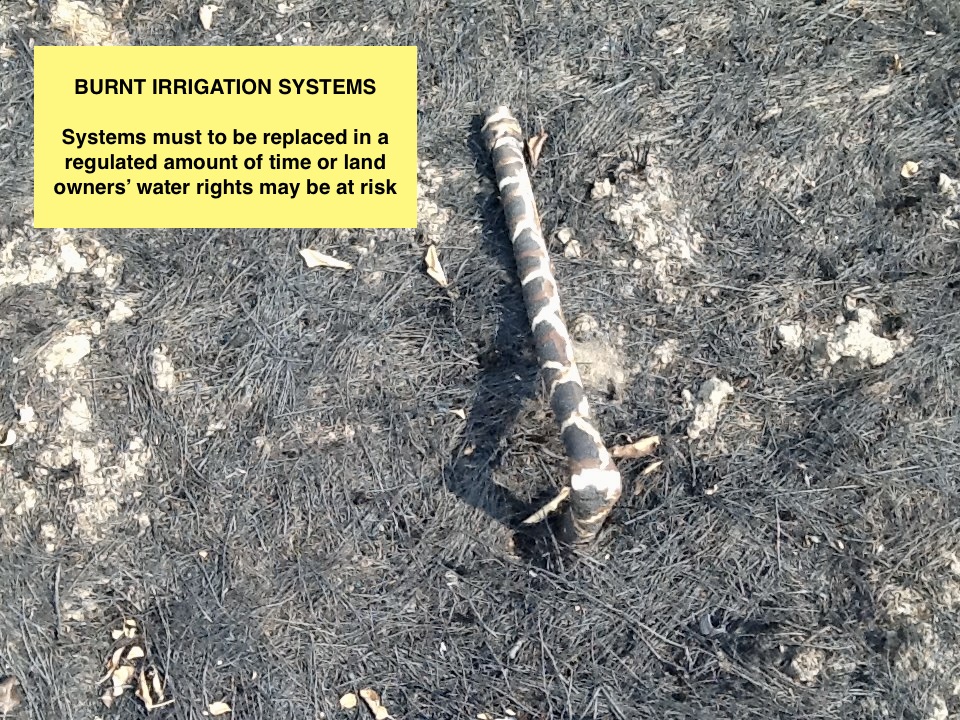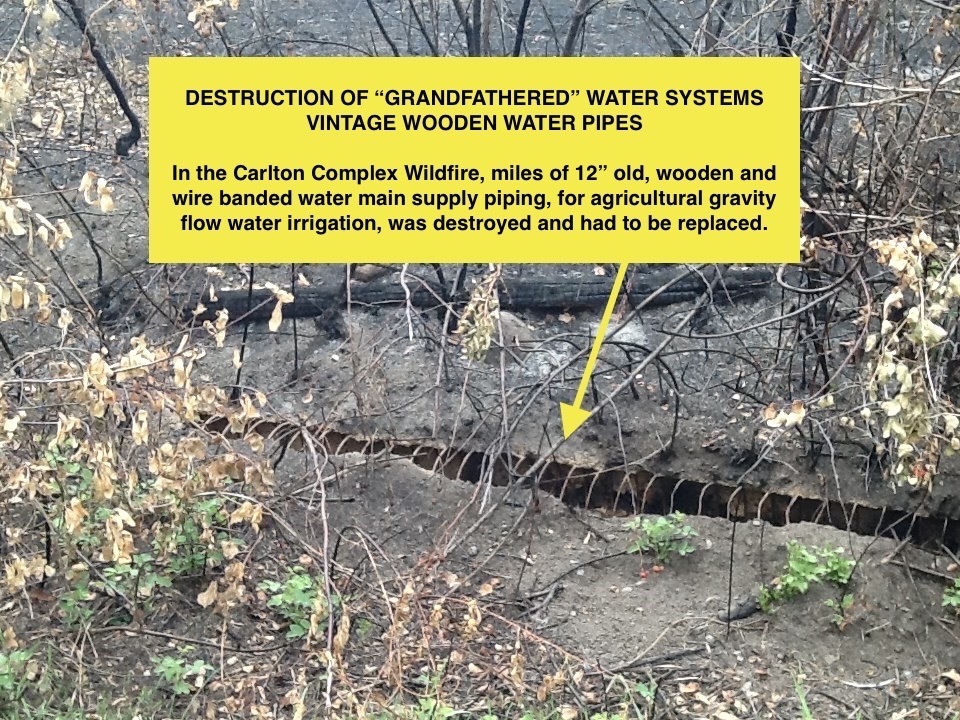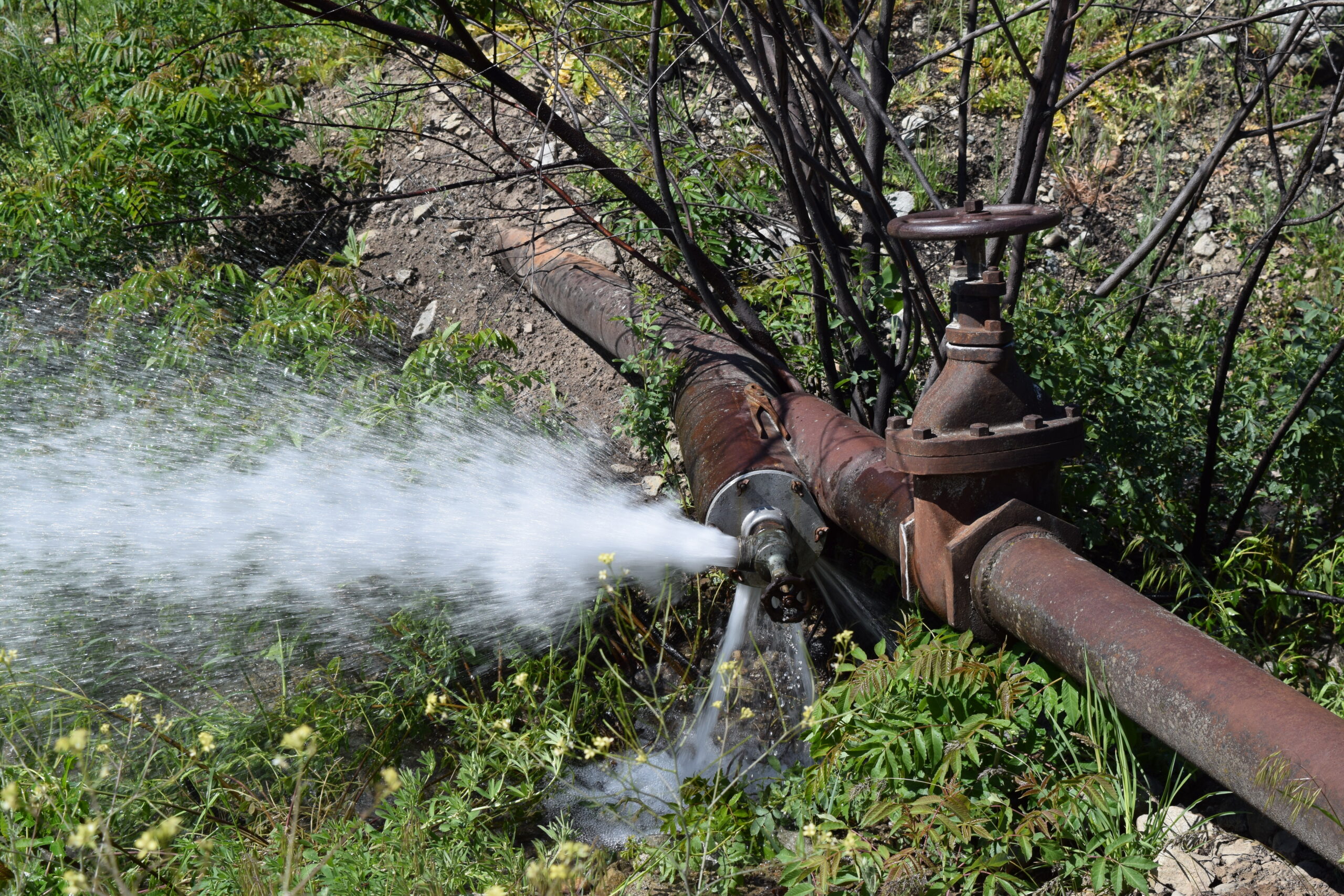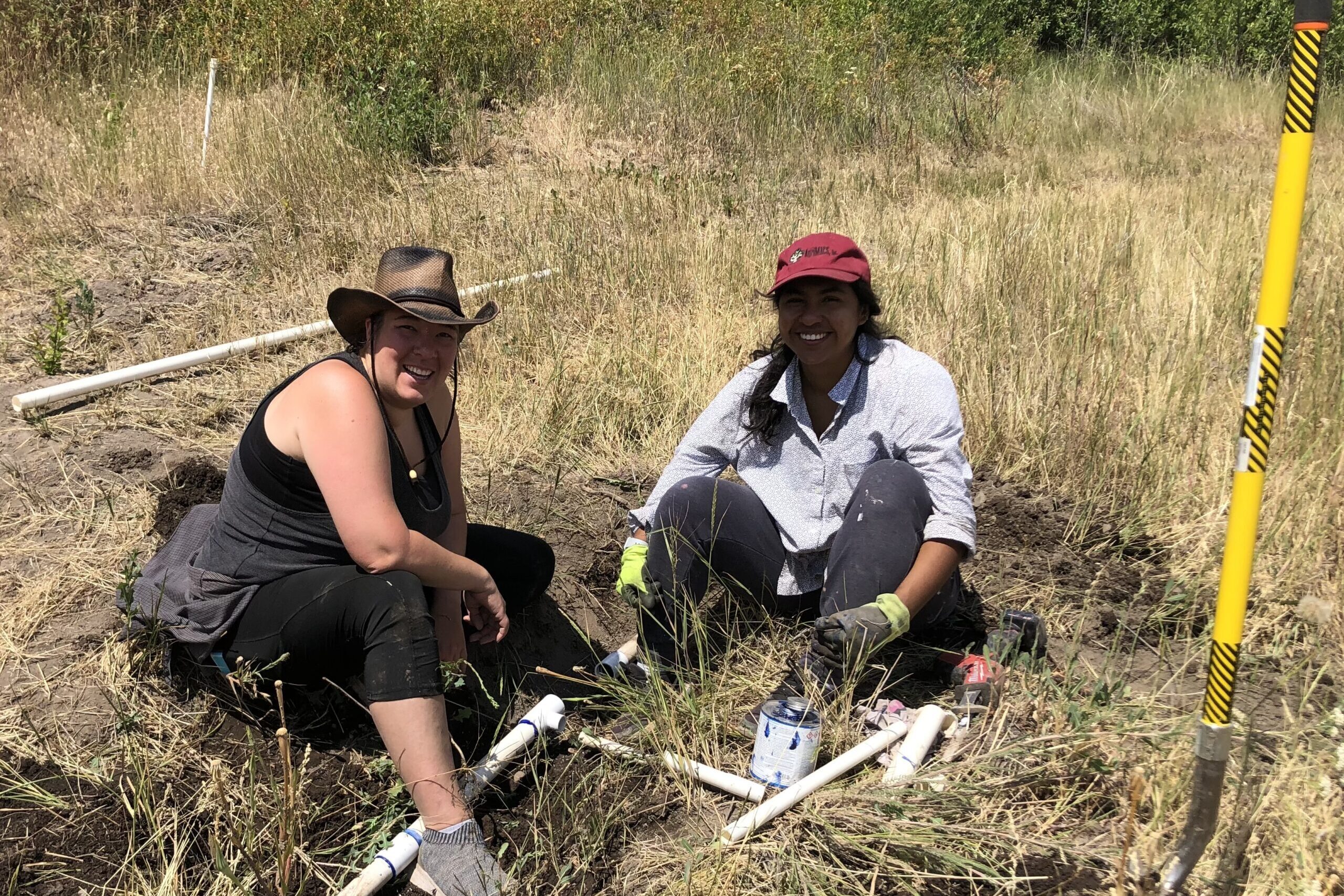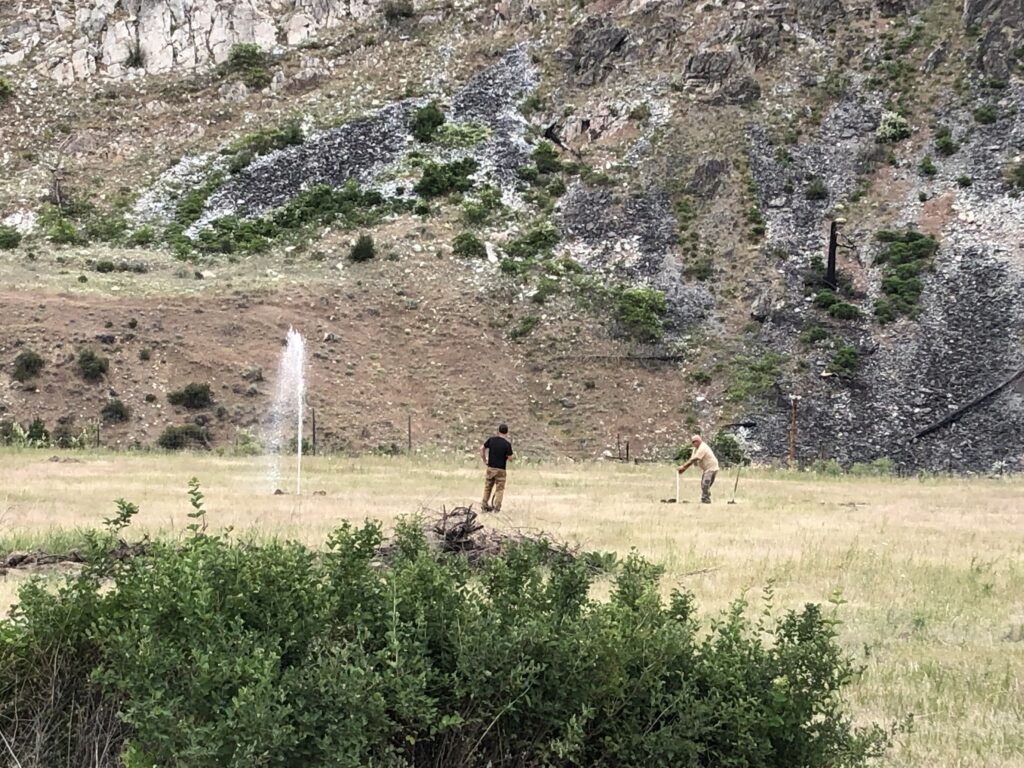In Washington State, wildfires can significantly impact water resources and the way water rights are managed, particularly for irrigation purposes. Wildfires leave behind burned vegetation and ash, which can be washed into rivers, streams, and other water sources during rainfall. This can impact gravity flow irrigation systems particularly. Additionally, wildfires often coincide with, or are, exacerbated by drought conditions, further straining water resources and potentially impacting irrigation allocations.
Key Tips for Maintaining Water Rights:
- Washington’s water law is based on the principle of “beneficial use,” meaning water rights are maintained through their actual use. If a wildfire directly prevents or limits the use of water under an existing irrigation water right, this may raise questions regarding whether the water right remains active under the “beneficial use” principle. After a fire, water systems must be replaced in a timely fashion as extended periods of non-use of a water right can lead to its partial or complete loss through relinquishment.
- The impact of wildfires on individual irrigation water rights will depend on various factors, including the location of the fire, the affected water source, and the specific terms of the water right. The Washington State Department of Ecology is responsible for administering water rights and can provide guidance on specific situations, including those impacted by wildfires.
- “Water banking” may be something to consider when and if appropriate, as once water rights are lost, they are virtually impossible to retrieve.
- If you rely on a private well for irrigation, it’s essential to consider testing and potentially treating your water after a wildfire to ensure its quality.
- Old lines may be able to be utilized if buried, however, if damaged trees are removed, lines will have to be replaced.
Resources:
